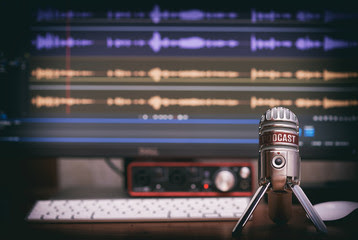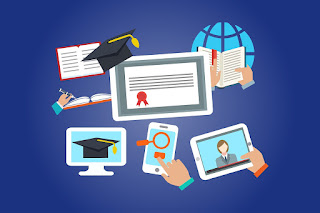The history of the Internet and Digital literacy
In a changing
world, it is important to be constantly learning. Specially, learning about
the digital area. The information and the way to obtain it have evolved. Nowadays,
we can get access to a lot of information like the blink of an eye throughout the internet, and its technological tools. For that reason, it is important not to be a
digitally illiterate.
Regarding the term Digital Literacy, how can we define it? One of the word that we can use to analyze it is the word literate. According to Word References dictionary is perceived as the competences or knowledge in specified area or the ability to read or write. In this particular case, I perceive it as the ability to understand and handle the devices and technological elements, such as: laptops, tablets, iPhone, kindles, internet, the apps and the technological programs. It is also an ability that allow us to read and write in a digital way, and to communicate a message at the same time.
Why is important to be a digitally literate? What competencies do we need to show to our students as EFL teachers? I consider that is so important to be at the precise level or demanded level of the circumstances. A teacher of the XXI century must be aware of all the elements and tools that technology has and offers, in order to take advantage of them in their teaching environment. Our students demand technology, especially, on the languages teaching field.
It is not by chance that the University of Greenwich in its article: “Being a digitally literate” mentioned the followed competences to get that; they mentioned the following three:
-Function
-Cultural awareness
-Creativity.
They say that Function refers to the intention of getting familiar with the sites, tools and devices, knowing how they really work. Then, we have the cultural awareness that answers the questions of when we should use something or not. It is not focus on how but on when. When it is appropriate and when we are going to obtain good results. The creativity on applying all the knowledge that we have about the digital world in our daily lives and our teacher´s path. We can have 1000 of tools but if we do not use them; we can lose many opportunities. As teachers, I think we should be pragmatics in our way of teaching and in the manage of our technological resources. We should think about what our students really need, taking in one hand our knowledge to transmit, and in the other a good and practical use of our resources. We should be friends of the technology; it must become our allied.For that reason, I am preparing myself to be better than yesterday. Each day, I am trying to learn as much as I can about technology, and what I do not know I try to discover it or figure out in order to know how to handle it better.
Each day, we need to grow and be ready to be at the level of their demands. There are teachers that could feel a type of aversion to learn new things, sometimes, they prefer to stay in their comfort zone not to learn, and they remain in an ignorance state. According to Jhon Cocoran, a teacher who could not read and write. He was 17 years illiterate until he decided to overcome his weakness. He expressed the following:
“Illiteracy is a form of slavery!" he would cry. "We can't waste time blaming anyone. We need to become obsessed with teaching people to read!”
After many years, this man wrote many books regarding literacy and illiteracy; I think we must follow his example on the area that we are not so strong enough. If technology were the case, maybe is time to start looking for an ICT class around you.
Regarding the term Digital Literacy, how can we define it? One of the word that we can use to analyze it is the word literate. According to Word References dictionary is perceived as the competences or knowledge in specified area or the ability to read or write. In this particular case, I perceive it as the ability to understand and handle the devices and technological elements, such as: laptops, tablets, iPhone, kindles, internet, the apps and the technological programs. It is also an ability that allow us to read and write in a digital way, and to communicate a message at the same time.
Why is important to be a digitally literate? What competencies do we need to show to our students as EFL teachers? I consider that is so important to be at the precise level or demanded level of the circumstances. A teacher of the XXI century must be aware of all the elements and tools that technology has and offers, in order to take advantage of them in their teaching environment. Our students demand technology, especially, on the languages teaching field.
It is not by chance that the University of Greenwich in its article: “Being a digitally literate” mentioned the followed competences to get that; they mentioned the following three:
-Function
-Cultural awareness
-Creativity.
They say that Function refers to the intention of getting familiar with the sites, tools and devices, knowing how they really work. Then, we have the cultural awareness that answers the questions of when we should use something or not. It is not focus on how but on when. When it is appropriate and when we are going to obtain good results. The creativity on applying all the knowledge that we have about the digital world in our daily lives and our teacher´s path. We can have 1000 of tools but if we do not use them; we can lose many opportunities. As teachers, I think we should be pragmatics in our way of teaching and in the manage of our technological resources. We should think about what our students really need, taking in one hand our knowledge to transmit, and in the other a good and practical use of our resources. We should be friends of the technology; it must become our allied.For that reason, I am preparing myself to be better than yesterday. Each day, I am trying to learn as much as I can about technology, and what I do not know I try to discover it or figure out in order to know how to handle it better.
Each day, we need to grow and be ready to be at the level of their demands. There are teachers that could feel a type of aversion to learn new things, sometimes, they prefer to stay in their comfort zone not to learn, and they remain in an ignorance state. According to Jhon Cocoran, a teacher who could not read and write. He was 17 years illiterate until he decided to overcome his weakness. He expressed the following:
“Illiteracy is a form of slavery!" he would cry. "We can't waste time blaming anyone. We need to become obsessed with teaching people to read!”
After many years, this man wrote many books regarding literacy and illiteracy; I think we must follow his example on the area that we are not so strong enough. If technology were the case, maybe is time to start looking for an ICT class around you.



Comments